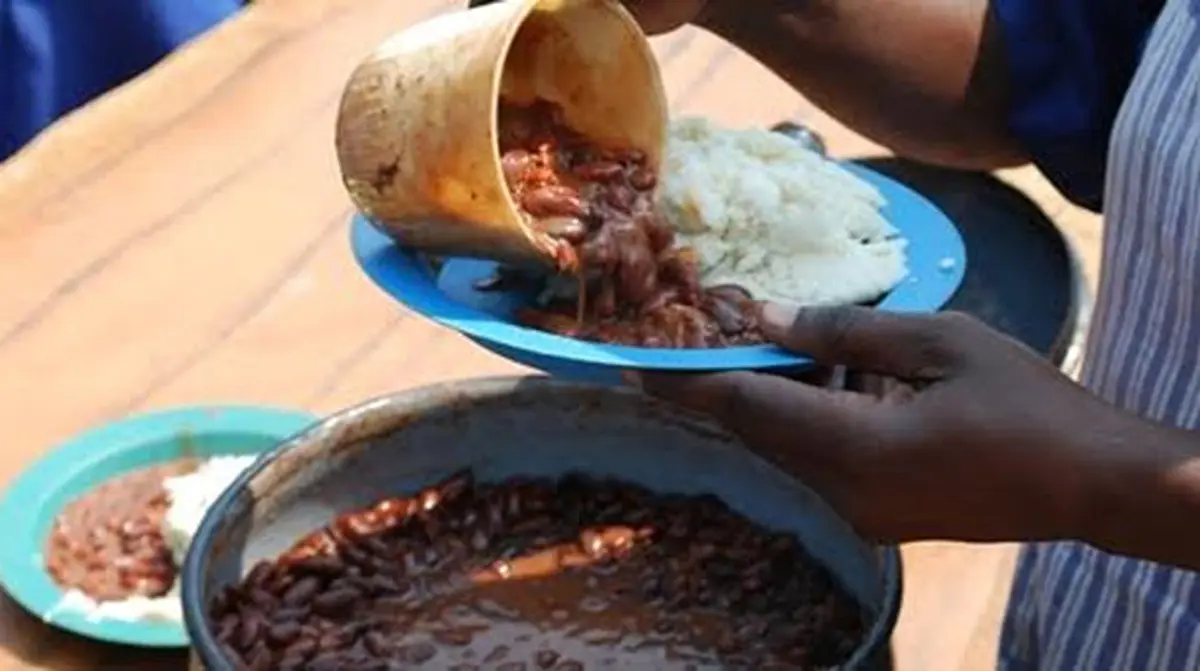Zimbabwe’s National Schools Feeding Programme is facing serious challenges as schools are being supplied with mealie-meal but no relish, forcing parents to contribute financially to make sure their children receive proper meals.
The burden placed on parents to contribute to the feeding programme has become unsustainable, especially for those already struggling with financial hardships.
This issue was raised in Parliament after legislators conducted public consultations with their constituencies and called for immediate government intervention to address the growing concerns.
Warren Park MP, Shakespeare Hamauswa, highlighted that some schools are now asking parents to contribute one dollar each to purchase relish for their children.
Hamauswa explained that while the government provides mealie-meal, isitshwala or sadza without any relish is insufficient to meet the nutritional needs of learners.
“We learnt during public consultations that schools are receiving mealie-meal without any relish, which is resulting in parents being asked to contribute a dollar each so that they buy relish for their children,” said the legislator.
“Sometimes you find a bucket of beans, which is then processed so that they have enough food. My request is that the responsible Ministry and the Minister of Social Welfare should look into the issue so that the programme becomes beneficial to children because we are told they are getting mealie-meal and you cannot eat sadza alone without any relish.”
Hamauswa said there is a need for solutions in order for the school feeding programme to achieve its intended purpose, which is to combat hunger and keep children in school.
He also pointed out that a US$15 million allocation had been earmarked for the purchase of relish, yet students continue to eat isitshwala without relish, raising questions about where the funds are being allocated.
“ This is bad enough because some children are not going to school because of lack of food…I am also informed that there is US$15 million which is earmarked for buying relish but surprisingly, those children who can read newspapers that there is an allocation of US$15 million, some might be asking where the US$15 million is whilst they are eating sadza without relish,” Hamauswa added.
“This programme is a flagship of our government programmes which shows the national outlook of the interventions that are made by the government but this programme might not achieve the intended or desired results.”
The MP noted stakeholders had to work together to solve this issue because some children were writing examinations when hungry.
Hamauswa questioned why parents were asked to contribute, despite the government’s prohibition on communities contributing money to move grain from GMB depots.
“Government does not permit the contribution of dollars for moving grain from GMB depots. My suggestion is this issue should be solved so that the image of the government is not tarnished because it is a very good programme,” he said.
Emakhandeni-Luveve MP Discent Bajila also weighed in on the situation, urging for clarity on the programme’ operation.
He called on the government to clarify whether it is responsible for supplying all food ingredients to schools or if schools are expected to source some of the food, either from parents or well-wishers.
“The challenge with leaving this in the hands of schools is that they are suffering in terms of access to money,” Bajila said.
“The first challenge that schools are facing is the non-payment of the Basic Education Assistance Module (BEAM) by the Ministry of Public Service, Labour and Social Welfare. At the present moment, schools have only received BEAM payments up to 2022.”
Bajila explained that schools heavily rely on BEAM to cover expenses, but delays in payments have left them financially crippled.
“This money that must come from the Government as BEAM is the one that schools rely on for much of the issues that require cash,” he said.
“ So if the school nutrition programme also has to rely on schools, it has a problem because schools will be unable to fund the nutrition needs of learners. At the end of the day, hunger will continue.”
Bajila claimed in some schools, up to 80 percent of learners are registered under BEAM and if the Government has not paid those funds, it meant schools were unable to fund much of their programmes, including the schools’ nutrition programme.
“Therefore, for the School Feeding Programme to succeed, there must be a fund, there must be resources from the Government. It might be the Government providing a mealie meal, it might be Government providing other forms of resources to schools for this nutrition programme to succeed because learners must find themselves at an equal footing regardless of whether they come from poor or rich families,” said the MP.

